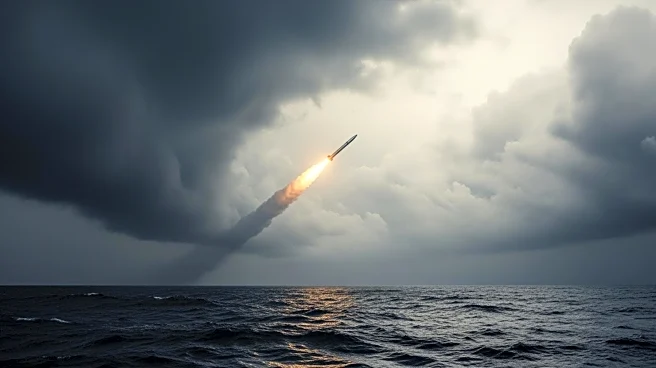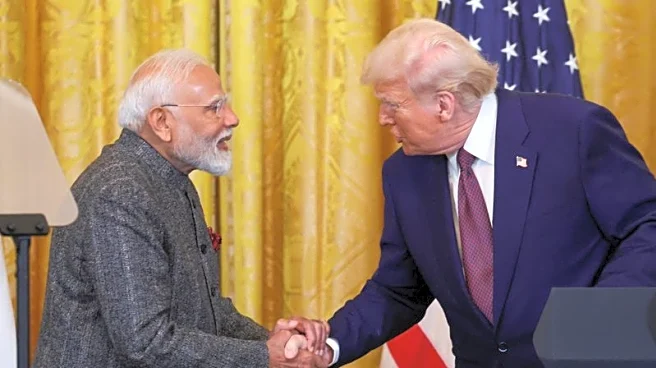What's Happening?
North Korea has test-fired multiple short-range ballistic missiles off its east coast, marking its first missile tests since May. The launches were detected by South Korea's military, which reported the missiles flew northeast from North Hwanghae Province.
The tests come days before President Donald Trump is scheduled to visit South Korea for the Asia-Pacific Economic Cooperation summit. North Korea's missile and nuclear programs remain a major source of tension with the United States, as leader Kim Jong Un has ruled out denuclearization, instead calling for the expansion of the atomic arsenal.
Why It's Important?
The missile tests highlight ongoing tensions between North Korea and the international community, particularly the United States and South Korea. North Korea's pursuit of nuclear capabilities poses a significant threat to regional stability and complicates diplomatic efforts. The timing of the tests, ahead of the APEC summit, suggests North Korea's intent to assert its status and influence discussions on economic sanctions. The situation underscores the challenges faced by President Trump and other leaders in addressing North Korea's nuclear ambitions while maintaining regional security and diplomatic relations.
What's Next?
President Trump's upcoming visit to South Korea for the APEC summit presents an opportunity for diplomatic engagement, although North Korea's actions may complicate discussions. Trump is expected to meet with South Korean President Lee Jae Myung and Chinese President Xi Jinping, potentially addressing the missile tests and broader security concerns. However, North Korea's demand for recognition as a nuclear state and its refusal to denuclearize remain significant obstacles to progress. The international community may need to reassess its approach to North Korea, balancing sanctions with diplomatic engagement to prevent further escalation.
Beyond the Headlines
North Korea's missile tests reflect its strategic focus on enhancing military capabilities amid stalled diplomatic efforts. The development of ballistic missiles could trigger a regional arms race, prompting neighboring countries to bolster their defense systems. Additionally, North Korea's reliance on missile tests as a form of political signaling highlights the challenges in achieving lasting peace and stability on the Korean Peninsula. The situation raises ethical questions about the impact of military advancements on civilian populations and the role of international diplomacy in addressing nuclear proliferation.

















